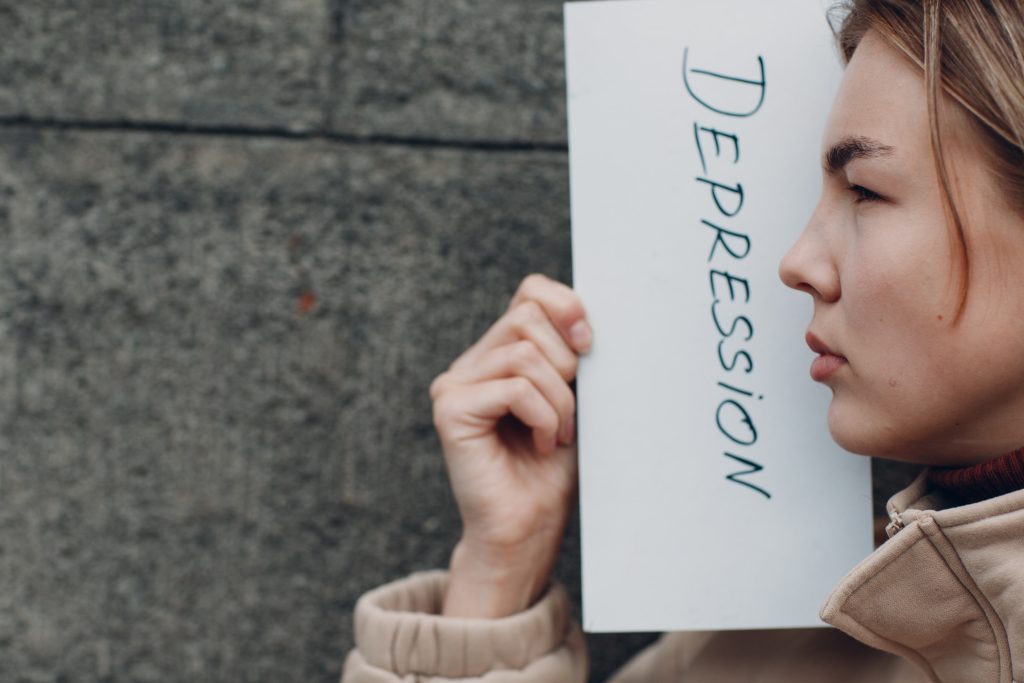
Depression isn’t always a dramatic, dark cloud. In fact, it doesn’t always look like someone crying in bed for weeks. Sometimes, the experience is much quieter. It can be a slow fade from color to gray or a subtle thief that steals your joy, your energy, and your sense of self, often so gradually that you don’t notice it’s happening.
Many people, especially those with high-functioning depression, dismiss these early signs. They might chalk them up to stress, fatigue, or just a rough patch. However, these subtle ways depression creeps in are critical warning signs. Recognizing them is the first, most powerful step toward finding your way back to the light.
1. Your Favorite Hobby Feels Like a Chore
You used to love painting, hiking, or reading. Now, the thought of doing it feels exhausting. It’s not just a lack of interest; rather, it’s a lack of pleasure. Indeed, this is called anhedonia, and it’s one of the most common and subtle signs of depression. When the things that once brought you joy now feel like work, something deeper is wrong.
2. You’re Constantly Irritable
Depression isn’t just sadness. For many, it often shows up as anger and irritability. You might find you have a short fuse where little things set you off. As a result, you may snap at your partner, your kids, or your coworkers. This constant state of agitation is often masking a deeper pain and emotional exhaustion.
3. Your Sleep Schedule Is a Mess
This can go one of two ways. For instance, you either can’t fall asleep or stay asleep, no matter how tired you are. Alternatively, you might be sleeping all the time. Even after ten hours of sleep, you can still wake up feeling completely drained. A disrupted sleep pattern is a major red flag that your brain chemistry is off-balance.
4. You Rely on “Numbing” Behaviors
You might find yourself drinking more than usual, binge-watching an entire TV series in one weekend, or scrolling endlessly through social media. Ultimately, these behaviors provide a temporary escape. They numb the uncomfortable feelings you don’t want to face. It’s a form of self-medication that signals you’re avoiding a deeper emotional issue.
5. Physical Aches and Pains Appear
Suddenly, your back always hurts, or you have persistent headaches and stomach problems. You may also feel a heavy, leaden feeling in your limbs. That’s because depression is not just in your head; it has a profound impact on your physical body. Consequently, unexplained aches and pains are often your body’s way of expressing emotional distress.
6. You Struggle with Indecisiveness
Deciding what to wear, what to eat for lunch, or which task to start first can suddenly feel overwhelming. Unfortunately, depression can impair your cognitive function, making it difficult to focus and weigh options. This mental fog subsequently leads to a paralyzing indecisiveness.
7. You Stop Responding to Texts and Calls
Seeing the notifications pile up can feel paralyzing. You may know you should respond, but you just can’t. The energy required to craft a reply feels monumental. In truth, this social withdrawal is one of the quiet ways depression creeps in, isolating you at the very moment you need connection the most.
8. Your Home Becomes Cluttered and Messy
The dishes are piling up in the sink and the laundry basket is overflowing. Meanwhile, you can’t seem to muster the energy to tidy up. The state of your external environment often reflects your internal state. When your mind feels chaotic and heavy, your living space can start to mirror that disorder.
9. Everything Feels “Fine,” But Nothing Feels Good
This is a hallmark of high-functioning depression. On the surface, your life is going well. You go to work, see friends, and do all the things you’re supposed to do. But underneath, there’s a persistent feeling of emptiness. You’re going through the motions, yet the color has drained from your life. Nothing is wrong, but nothing feels right.
10. You Engage in Pessimistic “Fortune Telling”
Your mind constantly jumps to the worst-case scenario. For example, you might be convinced that you’ll fail a presentation or assume that your friends are secretly annoyed with you. This cognitive distortion, where you predict a negative outcome without any real evidence, is a core feature of a depressive mindset. In effect, it filters your entire world through a lens of pessimism.
Acknowledging the Shadows Is the First Step to Light
Recognizing these quiet signs is not about labeling yourself. Instead, it’s about being honest with yourself. These subtle ways depression creeps in are not character flaws; rather, they are symptoms of a real and treatable illness. Therefore, acknowledging that something is wrong is an act of immense courage. It’s the moment you stop fading into the gray and start the journey back to a life of color and feeling.
If this resonates with you, please consider talking to a friend, family member, or mental health professional. You are not alone.
What to Read Next…….
- 7 Ways to Spot Depression in Someone Who Is Good at Hiding It
- How to Support a Loved One Who’s Struggling with Depression
- 10 Times Quitting A Job Saved Someone’s Mental Health
- 7 Common Mental Health Myths Debunked
- 7 Common Medications That Drain Your Energy Levels
The post 10 Subtle Ways Depression Creeps Into Your Life Without Warning appeared first on Budget and the Bees.







